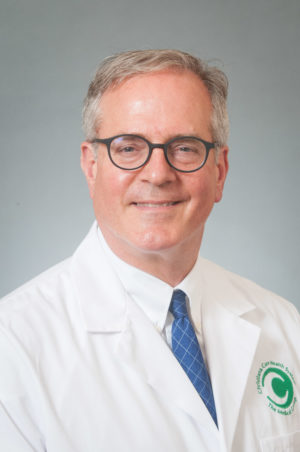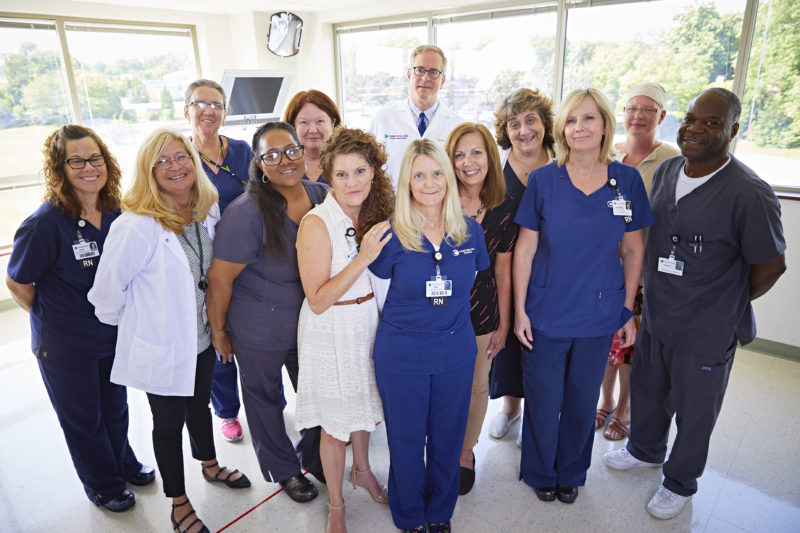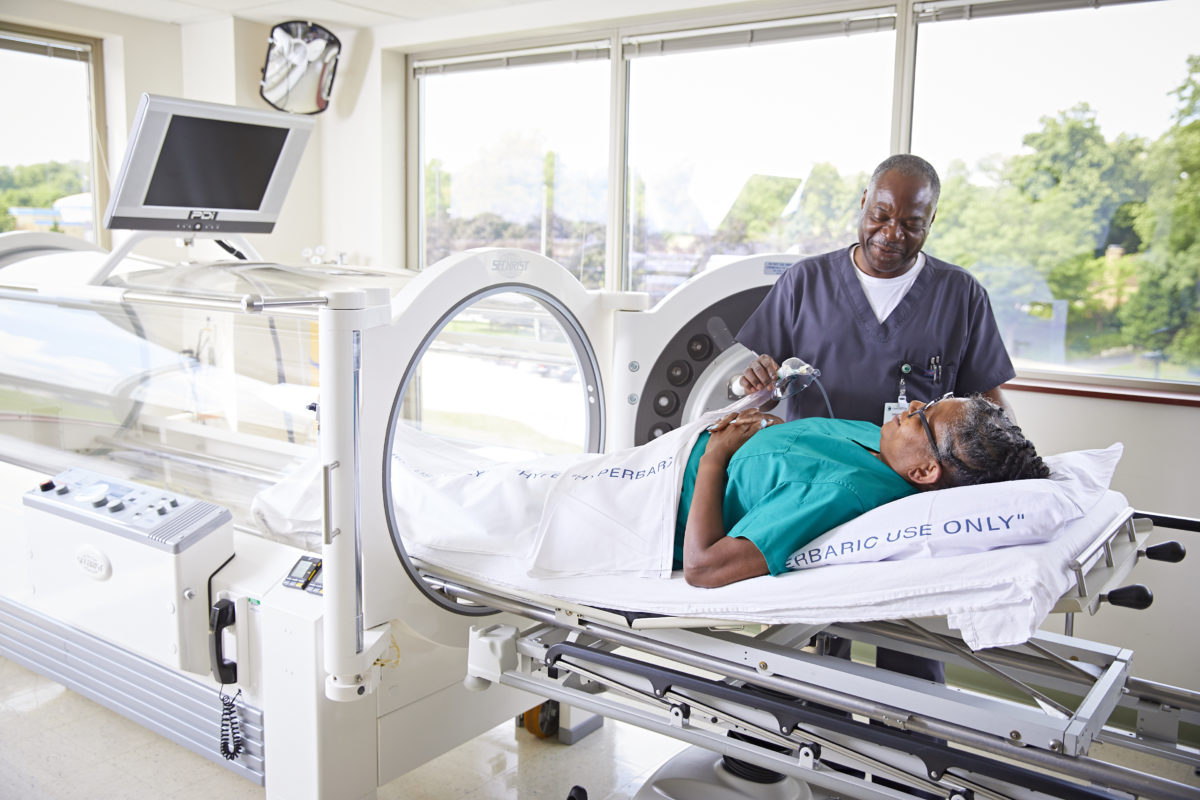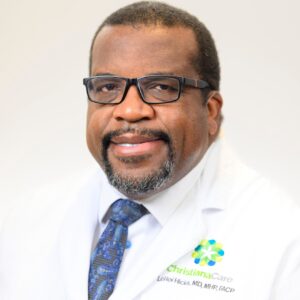More than three years after undergoing a lumpectomy and radiation for breast cancer, Debra Foster’s life was back on track. Then her new puppy scratched her at the site of her surgery. The scab came off, but the thumbnail-sized wound was still open. When months passed and there was no improvement, the Clayton resident visited her doctor.
After undergoing a surgical procedure to remove dead skin and tissue and clean the wound — a process called debridement — Foster seemed better. Then, while vacationing in Puerto Rico, the wound reopened, and she was back to square one. She was frustrated and upset.
Her doctor sent her to Christiana Care Health System’s Wound Care and Hyperbaric Medicine Center, where she underwent hyperbaric oxygen therapy. Although she needed another debridement procedure, the therapy worked.
“Eventually, thank God, the wound healed,” she said. “I was so happy. The staff there was fantastic.”
The need for wound care is on the rise. Partly that’s due to the increased incidence of diabetes and pre-diabetes, which can cause circulation issues. There are also higher rates of obesity, which can affect the body’s ability to heal. Without proper care, unhealed wounds can cause serious health problems, including the need for amputation.
To meet the demand and assure quality care, Christiana Care has assumed full management of the Wound Care and Hyperbaric Medicine Center, which is in the Riverside Medical Arts Complex in Wilmington.

The refurbished center is now part of Christiana Care’s Surgical Services service line, and in June, Daniel D. Mast, D.O., became the center’s new medical director.
Dr. Mast has increased the number of physicians on the center’s panel, which is made up of Christiana Care doctors as well as physicians in the community.
The center will add a third hyperbaric chamber in the fall.
“With this increased capacity, we expect to improve patient access to the center and improve the overall experience for the patients we serve,” said Gerard J. Fulda, M.D., chair of the Department of Surgery and physician leader of the service line.
Many different needs for wound care
The Wound Care and Hyperbaric Medicine Center specializes in wounds that haven’t healed for 30 days or more.
Like Foster, some patients seek treatment for non-healing wounds in areas that previously underwent radiation. Others have wounds related to diabetic ulcers, neuropathic ulcers — caused when people don’t feel the pain and continue to put pressure on a vulnerable spot — immobility-related pressure sores, infections, chronic venous and arterial insufficiency (poor circulation), burns or vasculitis (a range of diseases caused by the inflammation of the blood vessels).
Some patients have complex soft-tissue wounds, traumatic wounds, infected wounds or non-healing surgical wounds.
There are many reasons why these wounds are slow to heal. Age can be a factor. Some patients have multiple medical conditions that complicate the healing process. Left untreated, these wounds are open to bacteria that can lead to serious infections.
A team approach to care
Many patients are referred to the center by their doctor or a specialist. However, patients do not need a referral to seek treatment; the team will contact the patient’s primary physician for the necessary information. Christiana Care has also reached out to urgent care centers to make it easier for them to refer patients.
Regardless of how they hear about the program, patients can often get an appointment at the wound care center the day after calling.
A multidisciplinary team of wound care experts takes a comprehensive approach to each patient. “You need to put all the pieces together,” said Dr. Mast, a certified wound care specialist who is board-certified in internal medicine and geriatric medicine.

Lesa Prichard, BSN, RN, the nurse manager of the Wound Care and Hyperbaric Medicine Center, agrees.
“From the moment a patient calls the center, their care is already beginning,” Prichard said. “We do a thorough patient intake query and ask a lot of questions. We want to match them with the best possible providers to initiate their care.”
Creating a treatment plan may require input from infectious disease specialists, nurses certified in wound care, podiatrists, general surgeons, plastic surgeons and vascular surgeons.
Every patient receives a nutritional assessment. “It’s essential to wound healing,” Dr. Mast said of a good diet.
Because the Wound Care Center is part of Christiana Care, patients can have all the necessary diagnostic studies and evaluations completed within one system.
Advanced treatments for wound care
An individual’s treatment plan depends on the type of wound.
“We have specialty treatments that aren’t available in most physician offices,” Dr. Mast said.
That includes the state-of-the-art hyperbaric oxygen therapy (HBOT). Indications for HBOT include ulcers, pain or bleeding as a result of previous radiation therapy, diabetic foot ulcers, bone infections and ulcers due to poor circulation.
“It’s important to realize that HBOT can effectively treat these conditions,” Prichard said. “It can often help patients who are suffering or who are at risk of losing a limb.”
Christiana Care currently has two HBOT monochambers. Patients comfortably lie down in the chamber, which circulates 100 percent oxygen. The atmospheric pressure is increased and controlled. The body takes in the pure oxygen and delivers it to areas where the blood circulation is blocked or diminished to promote healing, reduce swelling and kill bacteria.
The glass chambers are enclosed, but patients are able to see their full surroundings. Christiana Care’s two chambers are located in a corner room with plenty of windows. Each chamber has a TV.
“I just focused on the television, started watching a movie and went to sleep,” Foster said.
Patients undergo HBOT for 30 to 40 days, Monday through Friday. Each treatment is from 90 to 120 minutes. From physicians to nurses to clinical technicians, only staff trained in hyperbaric medicine administer the treatment.
Not every patient needs HBOT. Other treatments at the center include advanced dressings, compression wraps and debridement.
Negative pressure wound therapy involves the use of a vacuum dressing to promote wound healing. Other treatments may include bioengineered skin substitutes that contain growth factors to encourage new skin growth.
The center will coordinate any external services, such as ordering medical supplies for the home, coordinating clinical studies or arranging home health care.
Increasing services, ensuring quality
This fall, the center will add another HBOT chamber to better accommodate patients who weigh up to 700 pounds or are up to 7 feet 5 inches tall.
The new equipment is just one example of how the Wound Care and Hyperbaric Medicine Center is expanding its services.
Christiana Care is also developing a lower-leg wound pathway to identify and help patients who need treatment and to facilitate comprehensive care. For example, a patient might come to the hospital with congestive heart failure but also have a leg wound. With the pathway in place, the patient will receive follow-up care for both, not just for the heart failure. The multidisciplinary project involves specialists in the wound care center, vascular surgery, interventional radiology, lymphedema therapists, podiatry, home health care and acute surgical services, as well as wound ostomy and continence nurses.
Foster is grateful for the center’s resources.
“Everything,” she said, “is going just fine.”



